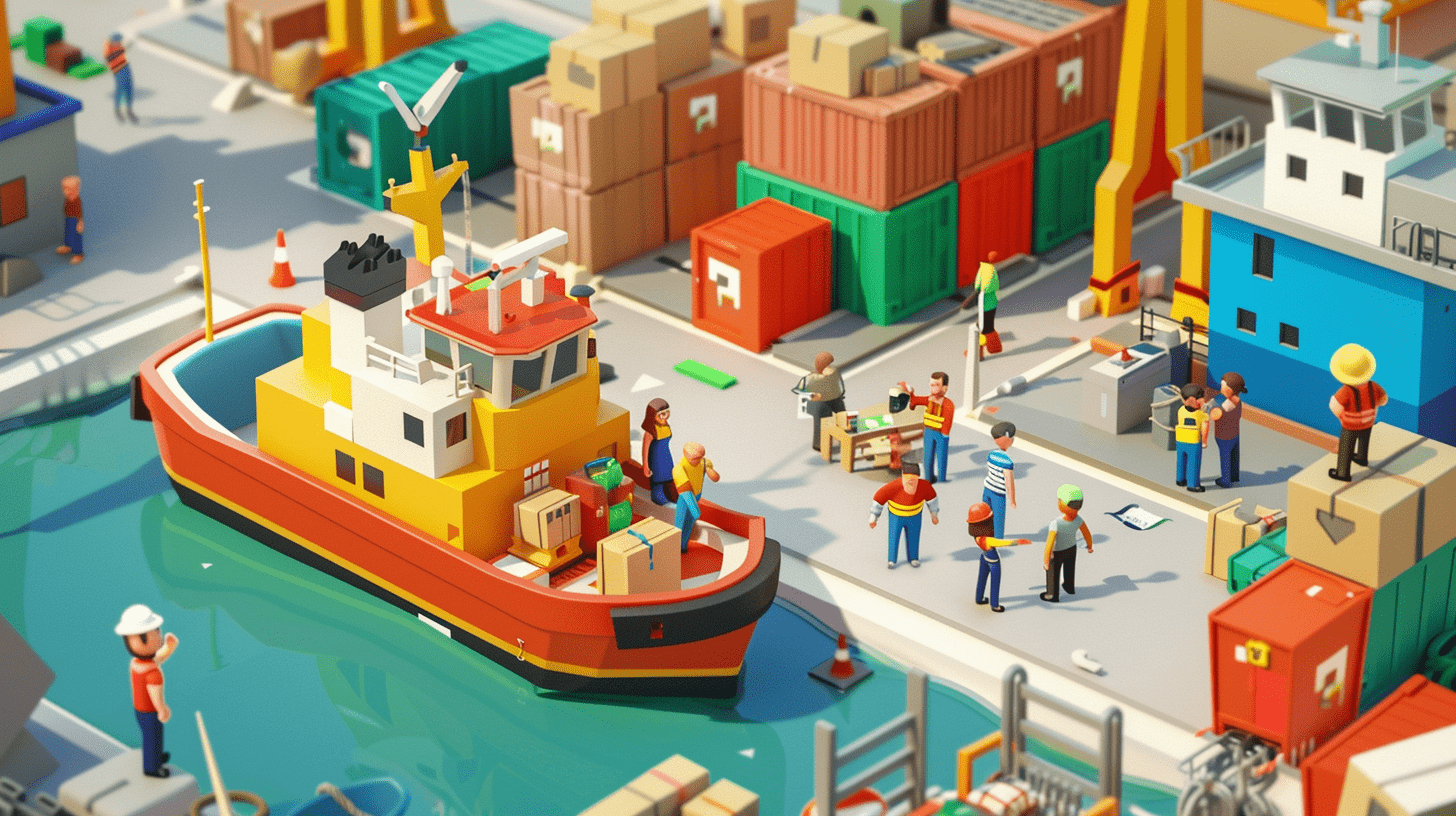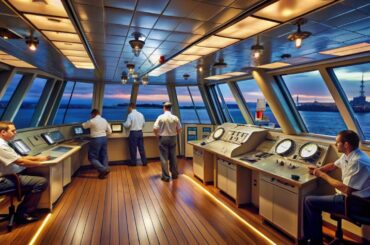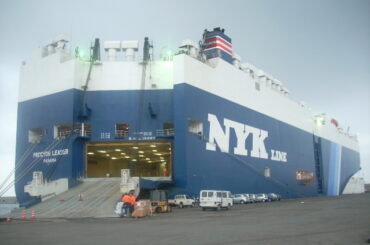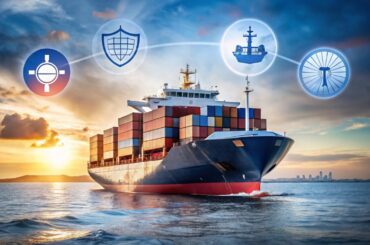Have you ever wondered about the pivotal role of a ship chandler in the maritime world? These professionals are the unsung heroes behind the scenes, ensuring that vessels are equipped with everything necessary for their journeys. From sourcing supplies to steering through complex regulations, a ship chandler’s responsibilities are vast and essential. But what exactly does it take to thrive in this unique industry and meet the diverse needs of seafarers? Let’s explore the intriguing world of ship chandlers and discover the intricacies of their trade.
The Role of a Ship Chandler
Have you ever wondered what exactly a ship chandler does in the maritime industry? A ship chandler plays a vital role in guaranteeing that vessels are supplied with essential items needed for their operations. From food provisions to engine parts, a ship chandler is responsible for managing the inventory of ship supplies to meet the demands of various vessels that dock at ports.
Inventory management is a key aspect of a ship chandler’s role. They must keep track of the stock levels of different items, anticipate the needs of incoming ships, and guarantee that there’s a sufficient supply of provisions and equipment on hand. This requires careful planning, organization, and coordination with suppliers to maintain a well-stocked inventory.
In addition to managing supplies, a ship chandler also plays a role in sourcing quality products at competitive prices, negotiating contracts with suppliers, and overseeing the delivery of goods to the ships. Their attention to detail, knowledge of maritime regulations, and ability to work under pressure make them indispensable in the smooth operation of maritime logistics.
History and Evolution
The history and evolution of ship chandlers trace back centuries, showcasing the essential role they’ve played in maritime trade and logistics.
Ship chandlers have a rich historical significance, dating back to the age of sail when ships relied heavily on provisions and supplies to undertake long journeys across the seas. In the early days, chandlers were indispensable suppliers of goods such as food, water, ropes, sails, and other necessities for ships and their crews.
As maritime trade expanded and evolved over time, ship chandlers adapted to meet the changing needs of vessels and seafarers. They became experts in sourcing and providing a wide range of products required for navigation, maintenance, and operation of ships.
Ship chandlers played a significant role in facilitating global trade by ensuring that ships were well-equipped for their voyages, contributing to the success of maritime missions and expeditions.
The evolution of ship chandlers mirrors the advancements in maritime technology and the increasing complexity of international trade, highlighting their enduring importance in the maritime industry.
Responsibilities and Duties
Playing an essential role in the smooth functioning of maritime operations, ship chandlers are tasked with a multitude of responsibilities and duties that are integral to the success of any seafaring venture.
Ship chandlers are responsible for managing the intricate supply chain that guarantees vessels are adequately stocked with provisions, spare parts, and equipment fundamental for their journeys. They play a key role in maintaining proper inventory management, making certain that ships have everything they need to operate efficiently and safely while at sea.
Ship chandlers must liaise with various suppliers to source high-quality goods at competitive prices, all while adhering to stringent regulations governing maritime trade.
They’re also responsible for overseeing the delivery and storage of supplies, ensuring that items are properly handled and stored to prevent damage.
Additionally, ship chandlers must stay updated on industry trends and developments to anticipate the needs of vessels under their care, demonstrating a keen sense of foresight and adaptability in the dynamic maritime environment.
Importance in Maritime Industry
Integral to the smooth operation of maritime activities, ship chandlers hold a pivotal role in guaranteeing the efficient provisioning and maintenance of vessels at sea. Ship chandlers play a significant part in the maritime industry’s supply chain by providing essential goods and services to ships, ranging from food and beverages to spare parts and safety equipment.
Their involvement in maritime logistics guarantees that vessels are well-equipped and prepared for their journeys, contributing to the overall effectiveness of maritime operations.
Ship chandlers are responsible for managing the procurement and delivery of supplies to vessels, which is vital for maintaining the seamless operation of the maritime supply chain. By coordinating with suppliers, handling inventory, and guaranteeing timely deliveries, ship chandlers help streamline the provisioning process and minimize disruptions in the supply chain.
Their attention to detail and knowledge of maritime logistics play a key role in supporting the efficient functioning of the maritime industry, ultimately benefiting both ship operators and crew members.
Challenges Faced by Ship Chandlers
Amidst the essential role they play in the maritime industry, ship chandlers encounter a range of challenges that test their operational efficiency and adaptability.
One of the key challenges faced by ship chandlers is effective inventory management. With a diverse range of products needed to cater to the varying needs of different vessels, maintaining ideal stock levels while avoiding overstocking or stockouts can be a complex task. Poor inventory management can lead to increased costs, delays in fulfilling orders, and dissatisfied customers.
Another significant challenge for ship chandlers is managing supplier relationships. Establishing reliable partnerships with suppliers is vital for ensuring timely deliveries of high-quality products.
Maintaining good relationships with suppliers requires effective communication, negotiation skills, and the ability to resolve any issues that may arise promptly. Disruptions in the supply chain can have a direct impact on the chandler’s ability to meet the demands of their clients efficiently.
Frequently Asked Questions
What Qualifications Are Needed to Become a Ship Chandler?
To become a ship chandler, you need a blend of educational background and industry experience. Possessing a relevant degree in business or maritime studies, coupled with hands-on experience in supply chain management, can pave your way into this niche profession.
How Do Ship Chandlers Source Their Products?
When sourcing products, ship chandlers establish strong supplier relationships. They meticulously evaluate quality, cost, and reliability. By nurturing these connections, ship chandlers guarantee timely deliveries, competitive pricing, and diverse product offerings to meet maritime needs effectively.
Are Ship Chandlers Responsible for Customs Clearance?
When handling customs regulations, ship chandlers typically don’t manage customs clearance directly. Their role focuses on providing supplies for vessels. However, they may assist with shipping logistics coordination to guarantee smooth operations for their clients.
Do Ship Chandlers Provide Services to Recreational Boats?
Yes, ship chandlers often provide a variety of services to recreational boats. They offer essential recreational supplies and boating services like fuel, provisions, maintenance supplies, safety equipment, and even assistance with repairs and docking arrangements.
How Do Ship Chandlers Handle Emergency Requests at Sea?
When facing emergency logistics at sea, ship chandlers swiftly respond to urgent maritime supply requests. They coordinate with vessels, providing essential provisions promptly and efficiently, ensuring vessels have critical supplies to navigate challenging situations.







